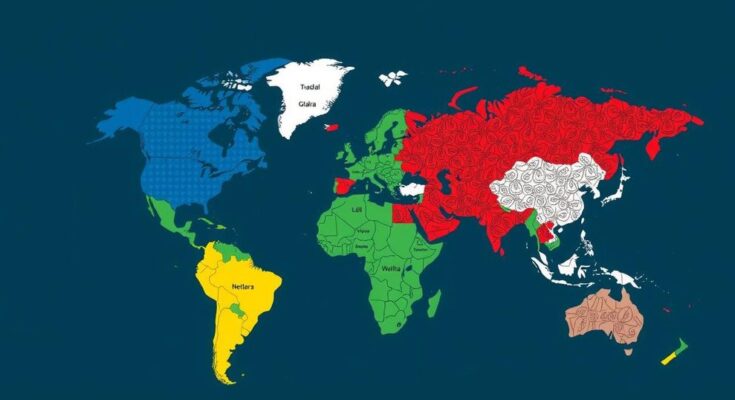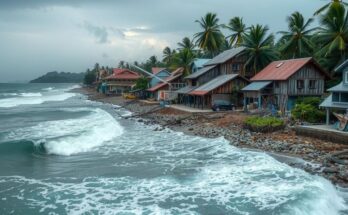The Commonwealth Heads of Government Meeting in Samoa brings together leaders from 56 nations to discuss pressing issues, including climate change and the call for reparations for the transatlantic slave trade. Key discussions center around the vulnerabilities faced by small island states due to rising sea levels and the demand for historical accountability regarding slavery.
The Commonwealth Heads of Government Meeting (CHOGM) commenced in Samoa, with leaders from 56 nations discussing critical issues, among which are climate change and the question of reparations for Britain’s historical role in the transatlantic slave trade. Notably, this gathering includes representatives from nations shaped by British colonialism, as well as King Charles of the United Kingdom. Attendees highlighted the increasing vulnerabilities faced by small island states within the Commonwealth, which are particularly susceptible to rising sea levels attributed to climate change. United Nations Secretary-General Antonio Guterres has indicated that ocean temperatures in the Pacific Islands are escalating at three times the global average, posing unique challenges for local populations. Australian Foreign Minister Penny Wong emphasized the gravity of these threats, categorizing climate change as the foremost national and economic security threat to Pacific nations and other Commonwealth members. Furthermore, leaders from several African nations, including Zambia, raised concerns regarding the repercussions of climate change on food security during the discussions. A declaration on ocean protection is anticipated to emerge from the summit, reinforcing the significance of climate change on the agenda. The conference will also serve as a platform to address the pressing demand for reparations for historical injustices resulting from the transatlantic slave trade, an issue gaining traction particularly among Caribbean and African leaders. British Prime Minister Keir Starmer stated that while the UK would not formally address reparations at the summit, it remains open to dialogue regarding the matter with interested leaders. CARICOM has initiated a commission aimed at pursuing reparations from former colonial powers such as the UK, France, and Portugal, amidst ongoing debates about the accountability for historical injustices. Those advocating for reparations argue that the enduring legacy of slavery has created persistent racial inequalities that necessitate acknowledgment and redress, while opponents contend that modern nations should not be held liable for historical actions. According to Kingsley Abbott, director at the University of London’s Institute of Commonwealth Studies, “Whenever those affected by atrocities ask to talk, there should always be a willingness to sit down and listen.” Historically, from the 15th to the 19th century, an estimated 12.5 million Africans were forcibly taken into slavery, with many perishing on the voyage and others enduring dreadful conditions while laboring on plantations, primarily in Brazil and the Caribbean.
The Commonwealth is an intergovernmental organization of 56 member states, many of which were formerly part of the British Empire. The CHOGM serves as a platform for member nations to discuss pertinent issues affecting their collective interests. Climate change is particularly urgent for Commonwealth nations, especially small island states, which face existential threats from rising sea levels and extreme weather events. The question of reparations for the transatlantic slave trade has also become a significant topic, as many nations seek acknowledgment and redress for the historical injustices that have left lasting impacts on their societies.
In conclusion, the Commonwealth Heads of Government Meeting in Samoa provides a critical platform for leaders to address urgent issues such as the threat of climate change and the ongoing calls for reparations stemming from the legacy of the transatlantic slave trade. While climate change poses immediate risks to member states, the unresolved historical injustices related to slavery continue to evoke passionate discussions about accountability and reparative justice.
Original Source: www.voanews.com




